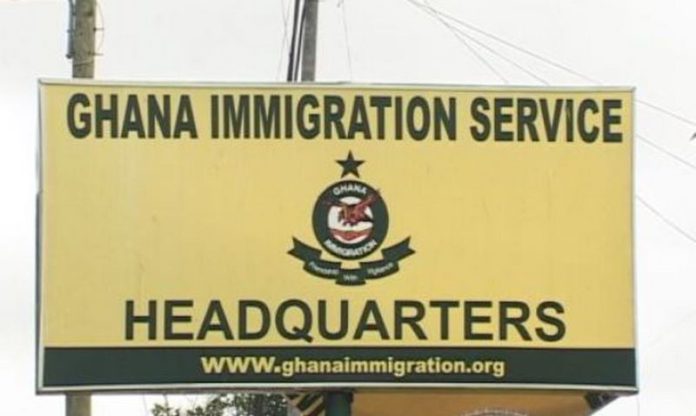Residents of some border communities in the Upper East Region have alleged that harassment by security officials is the major factor of mistrust between residents and the security agencies.
The communities include Kayoro, Chiana, Nakolo, and Basiwo in the Kassena Nankana West District and Sandema in the Builsa North Municipality.
According to them, the fight against violent extremism may be defeated if security officials, particularly the Ghana Police Service and Ghana Immigration Service, did not stop what they described as “constant extortion and harassment of civilians.”
A move away from such acts, they said, would foster effective collaboration to combat the activities of violent extremists and ensure sustained peace.
The residents raised the concerns when the Upper East Regional Peace Council organized fora in the respective communities to build trust between the residents of the border communities and the security services in the fight against violent extremism.
It formed part of the Atlantic Corridor project being implemented by the Peace Council under the theme “Building Trust between security services and border communities through community forums,” aimed at preventing and responding to violent extremism.
The project is being sponsored by the governments of Denmark, Norway, Germany, and Australia through the United Nations Development Programme (UNDP).
Mr Charles Bruse, a resident of the Basiwo community, indicated that the hurdle with Immigration Officers in bringing in their food produce from their farms across the border was worrisome.
“Our farms are across the border, so normally when we farm and are returning with our produce, we are told by the Immigration Officers that we are importing it and for that we should pay, but they are from our farms, just that the demarcation made it fall outside Ghana, but they would still insist and collect money from us”, he alleged.
Madam Zuliala Wagidi, another resident from Basiwo, collaborated this, adding, “I was coming with my food produce on three tricycles, and not that they don’t know my farm is across the border, but they still demanded I pay GH¢30.00 for each of them, which is worrying”.
My Francis Wepea, a resident from the Kayoro community, indicated that “we have long been yearning for a programme like this because of the challenges we face, especially with regards to how police extort money from us in the name of helmets, number plates, and the like, and this does not make us trust them at all”.
Mr Jacob Agoatik, a taxi driver and resident of the Sandema community, indicated that due to the constant harassment, traders were compelled to use unapproved routes, “instead of the police conducting proper searches on strangers whenever we are coming with them into the community, they are always interested in taking money from us.”
Mr David Angaamba, the principal programmes manager of the Upper East Regional Peace Council, highlighted that the concerns raised formed part of the reason for the engagement, to create a mutual ground and trust between the security services and border communities, to help combat crime.
He underscored the need for the residents to collaborate with the security agencies in the fight against violent extremism to enable a conducive environment for development to flourish.
“The security agencies, on their part, must ensure cordial relationship between them and the civilians for effective collaboration,” he said.
Deputy Superintendent of Immigration (DSI) Robert Ubindam, the Head of Operations, and Intelligence at the Paga Sector Command of the Ghana Immigration Service, said his outfit would work to ensure that the concerns and allegations of the residents were addressed.
“We have a common enemy, which is violent extremists, and that is why we need your support. When you see something and fail to say something and that person does something, it will be at the detriment of us all.”
Assistant Superintendent of Police (ASP) Joseph Tibire, the Builsa North Municipal Commander of the Ghana Police Service, said it was illegal for any police officer to demand money from residents on the road and encouraged them to take note of those officers and report them to higher authorities.
Source: GNA
ALSO READ:

